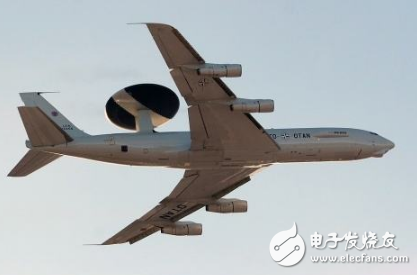The sky offers a much larger area compared to the ground, and with technological advancements in recent years, our lives have improved significantly. However, this progress has also brought challenges—travel quality has declined, with an increase in car exhaust emissions and severe traffic congestion. These issues have seriously impacted our quality of life, making traffic jams one of the most pressing problems today. As a result, people are now exploring the idea of moving transportation to the skies.
According to reports, Airbus has already started developing drones. Paul Eremenko, the CTO of Airbus, mentioned that if the new technology is successfully implemented, only one pilot might be needed on board, and fully autonomous flights could become a reality in the future.

Eremenko also noted that the implementation of unmanned passenger aircraft technology could help airlines cut costs. With full automation, pilot training expenses could be reduced, more efficient routes could be chosen, and fuel consumption would decrease as well.
A previous study by UBS suggested that unmanned aircraft could appear before 2025, potentially saving airlines around $35 billion annually. This figure is significant—roughly equivalent to the annual revenue of a major airline. In 2016, United Airlines, the second-largest airline in the U.S., reported revenues of $36.5 billion and a profit of $5.4 billion.
Meanwhile, Boeing predicts that the aviation industry will need 637,000 pilots over the next two decades, but currently, there are only about 200,000 pilots available. If drones are introduced, this shortage could be addressed effectively.
Although Airbus hasn’t revealed many details about its drone projects, its competitor Boeing has been actively investing. In the past two months, Boeing has acquired and invested in two companies focused on automatic flight technology.
At the Paris Air Show in June, Boeing announced it would explore the possibility of applying fully automated driving technology to commercial flights. Beyond drones, Boeing is also researching autonomous systems for small aircraft, drones, and even self-driving submarines. It plans to test unmanned jets in 2018.
While Boeing focuses on autonomous flying vehicles, Airbus is taking a different approach by working on airborne cars. Last week, the company launched its second innovation center in Shenzhen, aiming to collaborate with local partners on flying cars, new energy solutions, and urban air traffic systems.
Paul Eremenko explained that one reason for choosing Shenzhen was China’s rapidly opening aviation sector and the country's potential for advancing urban air mobility. He also hinted at possible collaborations with companies like Baidu and others involved in autonomous driving research.
Airbus’ first innovation center was established in Silicon Valley in 2015, focusing on future air travel concepts. Last year, the company announced plans to develop and launch Vahana, an autonomous flight transportation platform offering drone-based transport and online flight taxi services. It is expected that Vahana’s flying car will be tested for the first time later this year.
In January of this year, Airbus also began exploring urban air traffic for unmanned flying cars. Two months ago, it partnered with Shenzhen HAX, a hardware startup accelerator, to further develop urban air mobility solutions, though specific details remain unclear.
usb type c cable,4-in-1 data cable,type-c charger,type-c charging cable
DongGuan BoFan Technology Co.,Ltd. , https://www.ufriendcc.com
